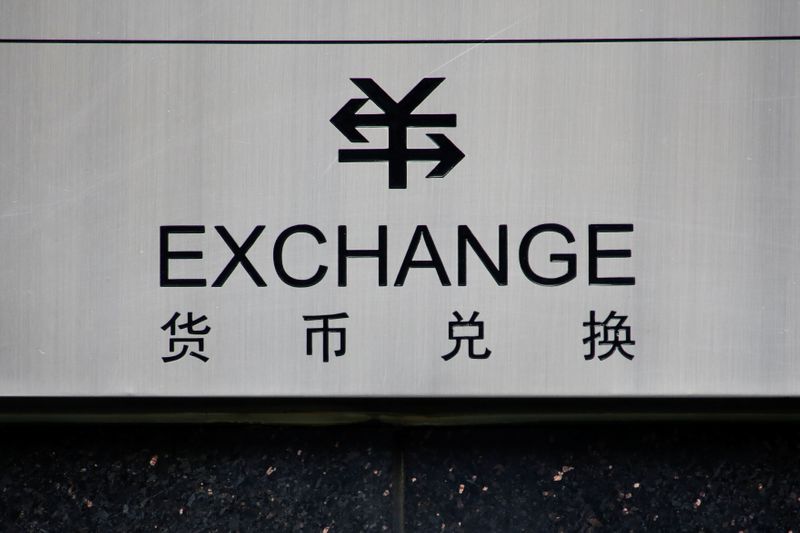BEIJING (Reuters) – China’s foreign currency reserves rose more than expected to the highest in more than 4-1/2 years in December, official data showed on Thursday, as the country’s economic recovery boosted the yuan against a weakening dollar.
The country’s foreign exchange reserves, the largest in the world, rose $38.03 billion in December to $3.217 trillion – the highest since April 2016, data from the People’s Bank of China showed.
Analysts polled by Reuters had expected foreign currency reserves to rise to $3.191 trillion from $3.178 trillion in November.
The rise in China’s reserves was due to the dollar’s fall against other major currencies, and rises in global asset prices, the foreign exchange regulator said in a statement.
The U.S. dollar index fell by 2.1% in December as investors switched to riskier assets on improving prospects of a global economic recovery. The yuan rose 0.8% against the dollar over that month.
Foreign inflows into Chinese stocks and bonds have also been strong as China gallops ahead of other major economies in its recovery.
Under recent changes to the central bank’s macroprudential framework, the upper limit for overseas loans made by domestic firms will be increased.
The central bank on Tuesday lifted its official yuan midpoint by the most since it abandoned a decade-old peg against the dollar in 2005, underpinned by sharp gains in spot prices a day earlier.
However, China’s foreign exchange regulator said on Wednesday it will prevent disorderly fluctuations in the currency market, after sharp gains in the yuan at the start of the year.
China held 62.64 million fine troy ounces of gold at the end of December, unchanged from November, the official data showed.
The value of the gold reserves rose to $118.25 billion at the end of December from $110.41 billion at end-November.
(Reporting by Kevin Yao and Judy Hua; Editing by Sam Holmes and Philippa Fletcher)






















